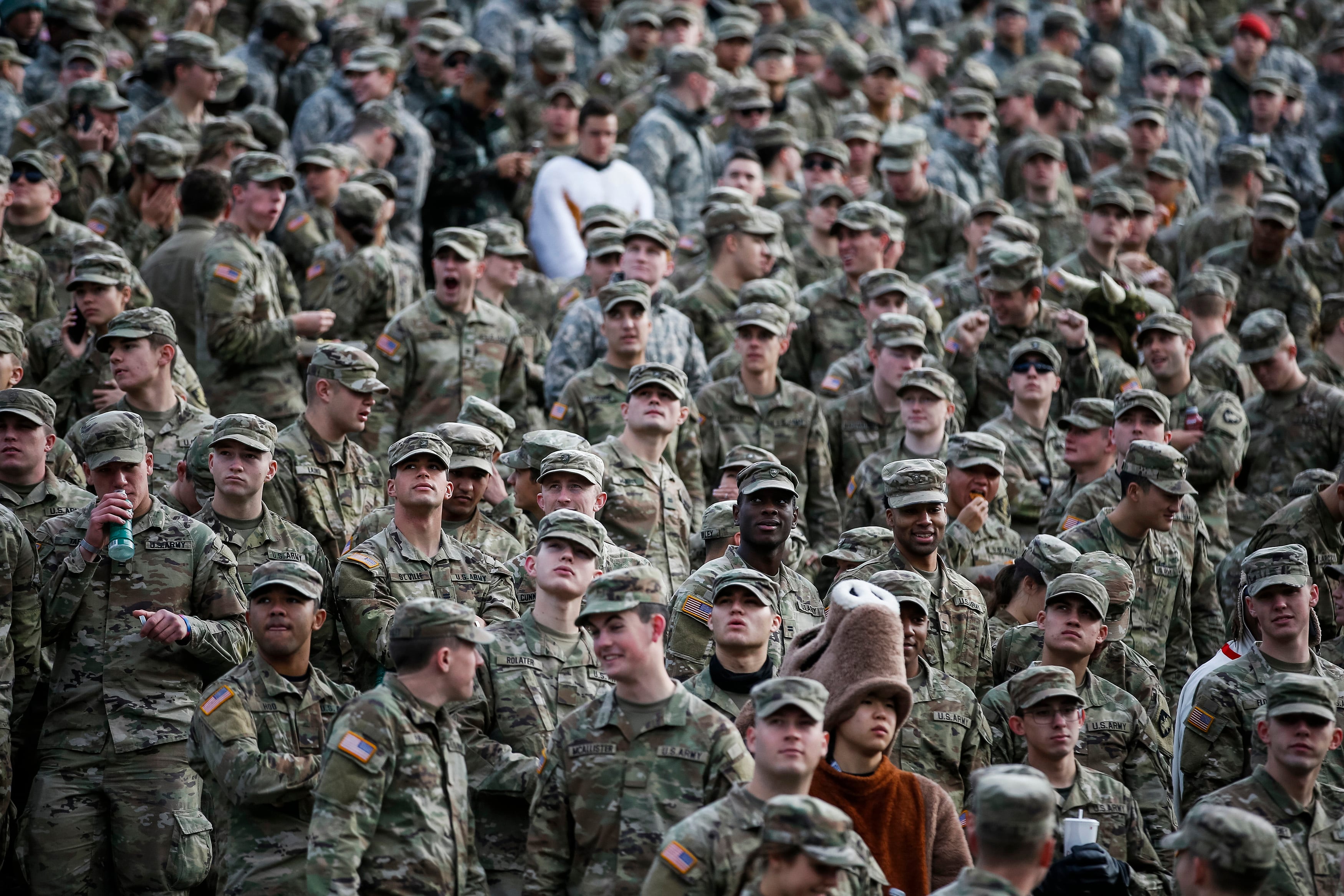BALTIMORE — Attorneys for the U.S. Naval Academy say the officer coaching college ought to be allowed to proceed utilizing race as an admissions issue as a result of prioritizing variety within the navy makes it stronger, more practical and extra extensively revered, in response to current court docket filings and testimony throughout an ongoing civil trial in Maryland.
The group behind this case, College students for Honest Admissions, was additionally behind the lawsuit difficult affirmative motion that resulted in a landmark U.S. Supreme Courtroom ruling final 12 months, when the court docket’s conservative majority prohibited the consideration of race and ethnicity in school admissions.
That call ended a longstanding observe meant to spice up alternatives for traditionally marginalized teams and despatched shockwaves via greater schooling. But it surely carved out a possible exemption for navy academies, suggesting that nationwide safety pursuits might have an effect on the authorized evaluation.
College students for Honest Admissions, which was based by conservative activist Edward Blum, later sued the Annapolis-based Naval Academy difficult the exemption.
A bench trial started final week in Baltimore federal court docket earlier than Choose Richard Bennett, a George W. Bush appointee who served for over 20 years within the U.S. Military Reserve and the Maryland Nationwide Guard.
Witness testimony throughout the first week of the trial included accounts from present and former high-ranking navy officers who expressed various opinions on how race impacts the experiences of service members and the group as a complete.
Lt. Col. Dakota Wooden, a retired Marine Corps officer and 1985 Naval Academy graduate, mentioned racial and ethnic variety are irrelevant when making a cohesive and efficient preventing power. Wooden, who’s white, mentioned what issues most is that every one members are held to excessive efficiency requirements.
Capt. Jason Birch, a former Navy SEAL commander who graduated from the Naval Academy in 1999 and presently serves on its admissions board, mentioned his experiences as a Black officer spotlight the significance of getting individuals who seem like him in management — not least as a result of it units an instance for youthful generations of minority service members.
He mentioned variety amongst U.S. navy leaders displays core American values, demonstrating that in the event you work onerous and carry out effectively, “no matter your background, no matter what you seem like, you’ll be put able of command and accountability.”
Birch recounted situations of racist conduct by white colleagues in addition to abroad assignments the place his racial identification appeared to garner respect from international leaders, together with a deployment to Somalia and a world go to to China.
“For many years, senior navy leaders have concluded that the preventing power is stronger when it’s racially and in any other case numerous in any respect ranges,” attorneys for the Naval Academy wrote in court docket papers. “The Armed Forces realized this lesson the onerous means.”
The American navy has handled “inside racial strife that has risked mission readiness since its inception,” they wrote, saying the group has made vital progress however nonetheless has a method to go. They mentioned creating a corporation that roughly displays the demographics of the nation is a crucial step towards eliminating inside battle.
The Naval Academy’s present admissions course of considers many components, together with grades, extracurricular actions, life expertise and socioeconomic standing, in response to court docket testimony. Race usually performs no function within the course of, however generally it comes into consideration in a “restricted vogue,” attorneys for the academy wrote in court docket papers.
“Candidates are evaluated with an eye fixed in direction of the myriad methods through which they may contribute to the Navy or Marine Corps as future officers,” they wrote.

The plaintiffs declare race ought to play no half in protection technique or school admissions.
“For many of its historical past, the Academy has evaluated midshipmen primarily based on benefit and achievement,” attorneys for the group wrote. “For good causes: America’s enemies don’t combat otherwise primarily based on the race of the commanding officer opposing them, sailors should comply with orders with out regard to the pores and skin colour of these giving them, and battlefield realities apply equally to all sailors no matter race, ethnicity, or nationwide origin.”
They argue that prioritizing minority candidates is unfair to certified white candidates and that cohesion ought to come up from different components corresponding to coaching and command construction.
The group additionally sued West Level final 12 months, however the Naval Academy case was the primary case to go to trial.
Throughout court docket testimony final week, consultants for the plaintiffs offered potential different admissions fashions that might concentrate on an applicant’s socioeconomic standing as an alternative of race.
Given the nation’s historical past of discrimination in opposition to racial minority teams, such a spotlight would yield related outcomes by way of variety, plaintiffs argued. In addition they mentioned it might higher determine candidates who possess the “true benefit” that comes with overcoming adversity and may very well be extra broadly accepted by the American public. However a lot of the fashions they offered confirmed that the proportion of white college students would improve and minority illustration would lower beneath their proposed methods.
Plaintiffs additionally offered information from the Naval Academy displaying barely decrease commencement charges amongst some minority teams, together with African Individuals.
Attorneys for the academy, although, argued that eradicating race totally from the admissions equation would put the Navy susceptible to repeating previous errors.
Beth Bailey, a historical past professor on the College of Kansas, described the navy’s fraught historical past of racial rigidity, which on some events erupted into violence. She mentioned that was very true throughout the Vietnam Conflict, when an absence of Black management threatened to jeopardize the American struggle effort.
“I’m going so far as saying they didn’t have a weapon they wanted,” she mentioned.
The bench trial is anticipated to wrap up later this week. The end result will nearly actually be appealed.















:quality(70)/cloudfront-us-east-1.images.arcpublishing.com/archetype/ZZJAZCVMVBCTRAZCBQBW6ILR3M.jpg?w=120&resize=120,86&ssl=1)





